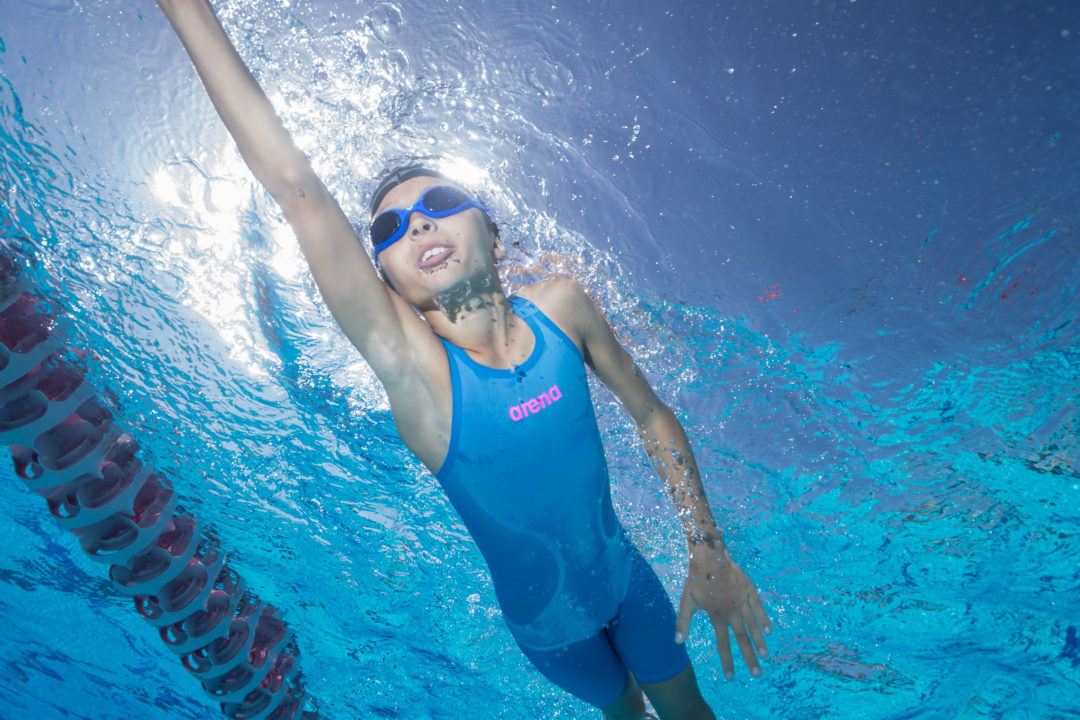Courtesy: Elizabeth Wickham
Our child’s performance is a touchy area to talk about when they aren’t doing well. When they’re dropping time and feeling great, it’s easy and wonderful to be their cheerleader. But, when things aren’t going well, should we talk about performance with them? When we do, we often get push back and defensiveness from our kids and it seems like we never say the right things. We may see something clearly that we want to share that will help them, but will it?
Sports parenting expert David Benzel from Growing Champions for Life discussed this topic in a webinar called “How to Discuss Performance Issues With Your Child and Remain Friends.” He gave good advice about when and how to talk about performance and the different roles of parents and coaches. Coaches talk about technical aspects of a performance and the ways athletes can improve. He said that parents have a bigger role—and that is as mentor.
Here’s how he described the roles of coach and mentor:
Coaching: Instructional, Inspirational, Analytical, Authoritarian, Organized and Encouraging.
Mentoring: Supportive, Exemplary, Compassionate, Authoritative, Empathetic, Loving.
In the two jobs there will be overlap. But according to Benzel, when parents wear the coaching hat, they end up confusing their kids.
Here are four reasons Benzel said our children are vulnerable when we act like a coach instead of a mentor:
1. Number one fear is disappointing us.
2. Our feedback can be viewed as criticism.
3. Defensiveness is the only position left open because we’re on the offense.
4. Child concludes “I’m never good enough to please my parents.”
I’m sure that’s not how we want our kids to feel. Our job as a mentor is to teach the many life lessons from swimming for the big picture of their lives, not a better streamline or faster turns—that’s the coach’s job. The life lessons Benzel said we’re responsible to help with include self-esteem, self-confidence, self-discipline, self-control, generosity, sacrifice, patience, personal responsibility, grit, optimism, handling emotions, humiliation, gratefulness, fairness and loyalty.
Benzel also gave some good tips for after a race or on the car ride home from a meet. First, it isn’t the time for a teachable moment. We’ll do better to talk about performance after we let 24 hours pass so we have a healthier perspective. It is the perfect time to say, “I love to watch you swim,” and “Are you hungry? Where would you like to go?” Ideally we listen more than talk and ask questions to open up a conversation like, “What part of the meet did you enjoy?” Also, wait to provide feedback until it’s asked for. In the meantime, we can offer love, support and empathy.
What tips do you have to talk to your kids about performance issues?
Elizabeth Wickham volunteered for 14 years on her kids’ club team as  board member, fundraiser, newsletter editor and “Mrs. meet manager.” She’s a writer with a bachelor of arts degree in editorial journalism from the University of Washington with a long career in public relations, marketing and advertising. Her stories have appeared in newspapers and magazines including the Los Angeles Times, Orange County Parenting and Ladybug. You can read more parenting tips on her blog: http://bleuwater.me/.
board member, fundraiser, newsletter editor and “Mrs. meet manager.” She’s a writer with a bachelor of arts degree in editorial journalism from the University of Washington with a long career in public relations, marketing and advertising. Her stories have appeared in newspapers and magazines including the Los Angeles Times, Orange County Parenting and Ladybug. You can read more parenting tips on her blog: http://bleuwater.me/.

Heck yes a parent should speak to their child about performance. My wife and I set practice goals, time goals and medal goals each month for our child. She Is one of the top swimmers in our area and we know we must push her hard or she will never make the Olympics. Some our friends think we are pushing too hard BUT she is eleven and she must learn to toughen and be competitively great. She no longer cry when she gets beat as tell her cryers are losers and the worst thing in the world is a loser.
I really hope this is someone being facetious or you are truly a crazy parent that needs to calm down and relax. Your child is going to hate themselves by the time they graduate high school.
That’s ridiculous. A child cannot be pushed to the Olympics, or any true high level. They must decide that is what they want and be able to work hard themsleves. There will be repercussions for your actions soon.
C’mon people, this is obvious trolling…
Most people don’t make the Olympics let along senior nationals. Most swimmers have the ability to outswim other lap swimmers or do a stroke like butterfly in their senior years. So, swimmers should think that this that everyone is going to be elite.
Apparently there are at least a handful of people who don’t like or didn’t get your joke…